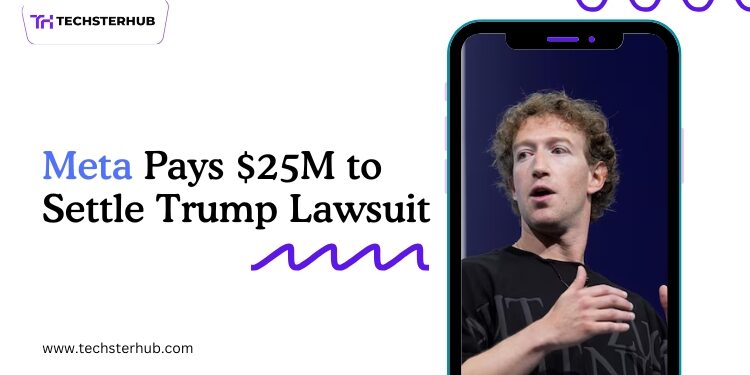Meta, which owns Facebook and Instagram, settled with former President Donald Trump with a $25 million payment following his lawsuit about social media account suspensions after the January 6 Capitol riots.
The Lawsuit and Claims
Meta Inc., under CEO Mark Zuckerberg, permanently suspended Donald Trump’s Facebook and Instagram accounts in 2022 following the U.S. Capitol riots incited by Trump supporters. Social media platforms suspended Trump because his posts broke rules about hate speech and misinformation while also inciting violence which violated their community standards.
According to Trump his account suspensions violated his First Amendment free speech rights while he accused Meta and other major social media firms of unfairly silencing his voice. Trump requested financial compensation from Meta as well as the return of his suspended accounts which he maintained were crucial for his political expression.
Meta’s Response and Settlement Terms
The company at first justified its actions as necessary to stop harm and violence but later opted for a settlement instead of enduring an extended legal dispute. The settlement agreement requires Trump to drop his claims against Meta while Meta will pay him $25 million.
The settlement arrangement requires the restoration of Trump’s Facebook and Instagram accounts which depends on his commitment to follow Meta’s content moderation standards. Users expect Trump’s accounts to become active again several weeks following the settlement completion.
According to Meta Trump’s future posts on its platforms will undergo standard review procedures as per the company’s existing policies. The company remains under continuous examination for its management of prominent personalities such as Trump who was barred from Twitter and Facebook because he propagated misinformation and supported the Capitol riots.
Reactions to the Settlement
The settlement has drawn mixed reactions. Trump’s advocates interpret the $25 million payment as a triumph that confirms his views against tech company censorship. Critics maintain that Meta should have paid more because Trump’s social media presence has such extensive reach and influence.
Privacy and civil rights organizations have offered their assessments and some have shown apprehension about how these settlements could affect future content moderation cases. Legal experts express concern that this settlement could create a pattern where famous individuals use lawsuits to challenge social media companies’ content moderation decisions which could complicate the moderation process.
Social Media Platforms Face Increasing Challenges in Content Moderation
Social media companies continue to struggle with the task of maintaining free speech whilst preventing harmful misinformation and violence through their platforms. Meta together with platforms such as Twitter and YouTube faces mounting demands to solve these problems while maintaining platform safety and fairness for every user.
While Trump’s reinstatement may draw attention, the broader question remains: Trump’s return to social media platforms may capture headlines but the essential question persists: How can online platforms govern content to ensure authenticity and protect individuals from harm while steering clear of censorship and overreach? Social media leaders such as Meta will probably keep modifying their frameworks because of public examination and legal disputes alongside rising demands for responsibility.
Conclusion
Meta’s $25 million settlement with Donald Trump represents a key development in the discussion about how social media platforms manage content. The settlement of a major legal conflict through payment brings to light the influential yet contentious influence tech giants exert over political communications. The digital landscape keeps changing which means platforms and users must carefully balance free speech with responsible content moderation.











